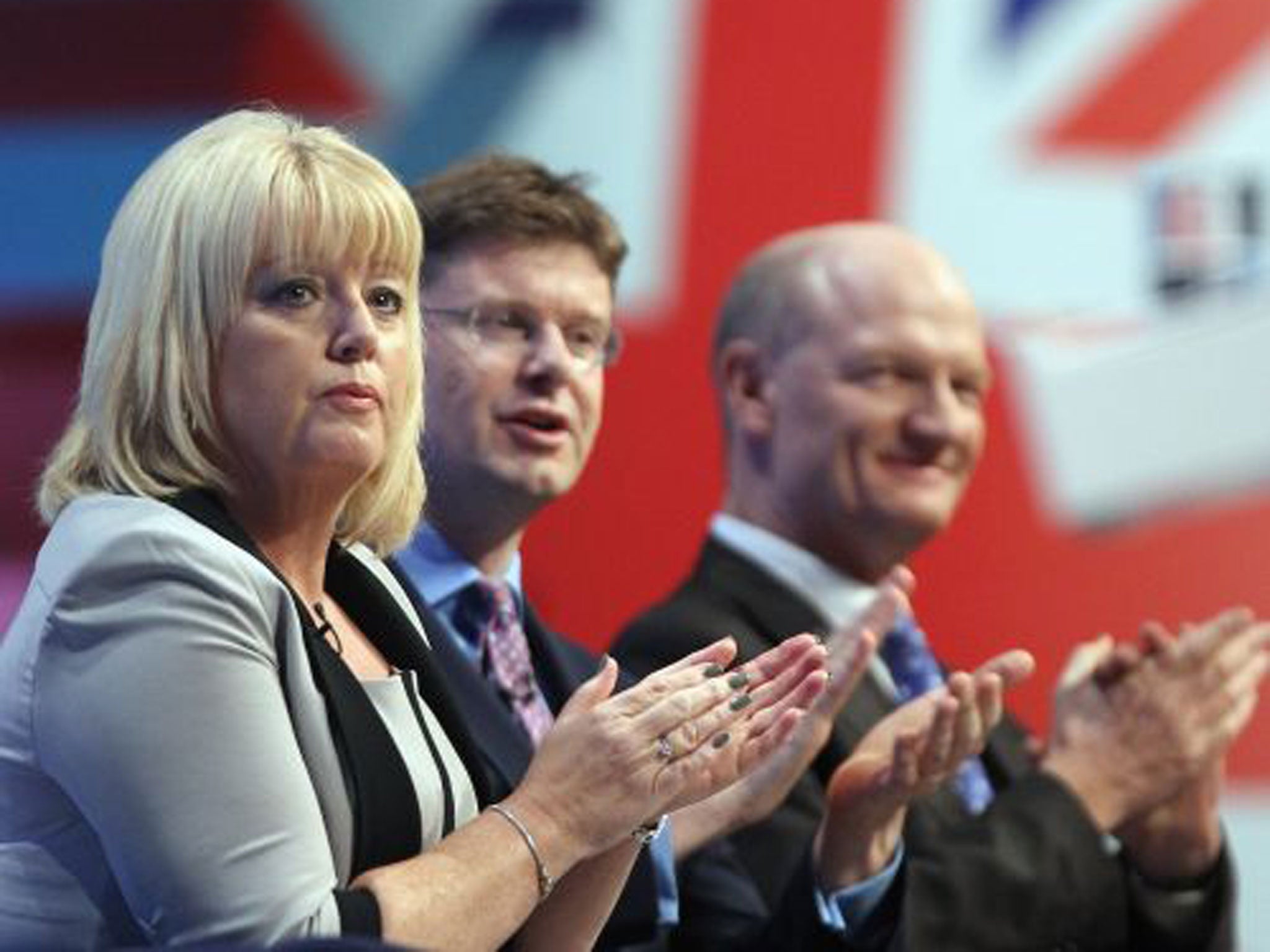New antisocial measures won't work, says Government's Victims' Commissioner
Police should intervene earlier when vulnerable people are harassed, warns Baroness Newlove

Your support helps us to tell the story
From reproductive rights to climate change to Big Tech, The Independent is on the ground when the story is developing. Whether it's investigating the financials of Elon Musk's pro-Trump PAC or producing our latest documentary, 'The A Word', which shines a light on the American women fighting for reproductive rights, we know how important it is to parse out the facts from the messaging.
At such a critical moment in US history, we need reporters on the ground. Your donation allows us to keep sending journalists to speak to both sides of the story.
The Independent is trusted by Americans across the entire political spectrum. And unlike many other quality news outlets, we choose not to lock Americans out of our reporting and analysis with paywalls. We believe quality journalism should be available to everyone, paid for by those who can afford it.
Your support makes all the difference.The woman appointed by David Cameron to represent victims of crime, whose husband was killed by a gang of youths, has criticised two key aspects of the Government's new antisocial behaviour reforms.
Helen Newlove, the Government's Victims' Commissioner, expressed doubts about the effectiveness of the new "community trigger", which obliges police and councils to intervene – but only after receiving three complaints.
Baroness Newlove, who has campaigned on antisocial behaviour since her husband Garry was murdered in 2007, also voiced concerns about police being able to issue Injunctions to Prevent Nuisance and Annoyance (Ipnas). These are replacing, in part, antisocial behaviour orders, or Asbos, and are designed to tackle low-level offending.
They can be used against anyone who is causing annoyance rather than committing a crime, which carries a lower burden of proof. Lady Newlove, submitting evidence to MPs scrutinising the Antisocial Behaviour, Crime and Policing Bill, warned that Ipnas could "add to the workload of frontline officers because of their lack of knowledge of civil law". This would make them reluctant to use the injunctions, she said.
When the law has been broken, police will be able to issue Criminal Behaviour Orders, which Lady Newlove said she supports.
The "community trigger" was proposed by Theresa May, the Home Secretary, last year. It was prompted by the case of Fiona Pilkington, who killed herself and her 18-year-old disabled daughter Francecca Hardwick in 2007 after years of harassment by youths in Barwell, Leicestershire. The family's repeated appeals to the authorities for help were ignored.
The scheme has been piloted in several areas but used just 13 times despite 44,011 reports of bad behaviour, suggesting that the "three strikes" measure is ineffective.
Critics say three is too high a figure because victims of antisocial behaviour often do not report an incident on the first occasion, thinking it will be a one-off. The scheme also does nothing to take the vulnerability of the victim into account.
In her written evidence to MPs, Lady Newlove said that while she supported giving powers to residents to force the police and authorities to act on antisocial behaviour, the idea of a minimum of three complaints was "potentially problematic because it implies that a certain number of incidents are acceptable before any action needs to be taken by the authorities". She added: "For this reason the term 'community trigger' should be avoided. Alternatives might include 'community review' or 'community alert'."
Mr Cameron gave Lady Newlove her peerage shortly before entering Downing Street in May 2010, a move which helped give credibility to the incoming coalition government on law and order. She was appointed as the Government's Champion for Active, Safer Communities in 2010.
Gloria De Piero, Labour's home affairs spokeswoman, said: "It is not good enough for the Government to say action on antisocial behaviour must only be taken if someone calls three times. It is highly unlikely that the first time a victim calls it will be the first time they have experienced the harassment.
"We will be calling on the Government to take into account the vulnerability of the victim to ensure there is meaningful action."
A Home Office spokesperson said: “Anti-social behaviour is unacceptable and a duty already exists on local agencies to deal with every report of ASB.
“The Community Trigger is intended to be a safety net for the public if police and local authorities fail to act and will ensure that no-one has to suffer persistent, targeted ASB over a prolonged period of time. It is one of a range of new measures which will make it easier and quicker for agencies to protect victims and communities from the blight of anti-social behaviour.
“We want the police to be able to use their new powers effectively, so learning how to use them properly will become part of their regular training.”